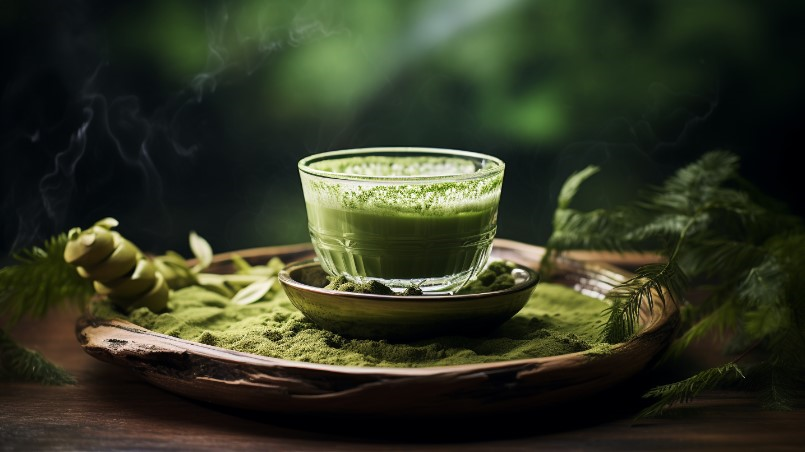Matcha Un poco de matcha en invierno

Matcha originated in China and emerged in the Sui and Tang Dynasties and reached its peak in the Song Dynasty. As early as the Tang Dynasty, people invented steaming green loose tea (grinding tea) and formulated the method of evaluating the color and flavor of tea, and became an indispensable daily drink for people. Later, the Chinese Matcha ceremony was lost, forming a historical period. The repatriation of Tang Dynasty in that year enabled Rong Xi to bring back to Japan after completing his studies in China, and matcha was preserved, inherited and carried forward in Japan.
The raw material of matcha is “grinding tea”, that is, one month before the tea is collected, the tea garden is covered with a shed, about 20 days or so, the tea buds are picked, and the water on the surface of the tea is removed by distillation, that is, the tea is dried and ground, and then the stone is ground into a very delicate powder.
Matcha has high quality requirements for raw materials, requiring the use of tea leaves with high amino acid, protein and chlorophyll content, and the content of caffeine in raw materials is low. Before picking, there are strict requirements on the picking time and leaf size of fresh tea leaves.
Color: Matcha is dark green or dark green because it is covered with steam green; Green tea powder is grass green
Taste: Matcha not astringent less bitter; Green tea powder is slightly bitter. Aroma: Matcha with seaweed, Zongye aroma; Green tea powder for grass aroma
Fineness: Matcha powder fineness of more than 6000 mesh (2 microns), applied on the back of the hand can all enter the pores; Green tea powder about 100-300 mesh, much thicker than matcha
Ingredients: Matcha powder: tea polyphenols, amino acids, chlorophyll, aromatic substances, cellulose, caffeine, vitamin C, E and beta carotene, etc. Green tea powder: caffeine, polyphenols (catechins), vitamins, mineral elements, amino acids, etc
Price: The price of matcha tea is nearly 100 times that of green tea powder, and the price of ordinary tea powder and matcha tea is worlds apart. The average price of matcha tea is about 2000 yuan/catty, which is the price of ordinary green tea powder, ranging from tens to hundreds of yuan per catty.
Matcha nutrition, delicious, high appearance level, regardless of dessert snacks or drinks, as long as the addition of matcha, the second becomes smaller and fresh, the appearance level rises straight, not to mention its slightly astringent fragrance can just neutralize the sweet and greasy, rich trace elements are enough to supplement nutrition. All these advantages make matcha gradually become a new responsibility for health, fashion and appearance level.
() ()